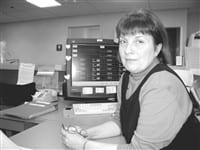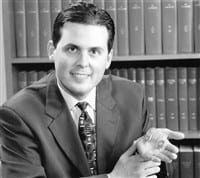Knowledge Is Power- Holyoke Hospital Program Offers Help To Congestive Heart Failure Sufferers
Two million Americans experience heart failure, and half of those affected with congestive heart failure (CHF) are hospitalized each year.
In response to such sobering numbers, Holyoke Hospital initiated a free program to help people with CHF and their families get the information and support they need to live their lives with the greatest possible quality.
Two years ago, the hospital’s CHF Project team began studying ways in which the facility might be able to help individuals struggling with the condition. A community education program titled Living with Congestive Heart Failure grew out of those efforts, offering a self-management approach to dealing with the disease.
The first installment of the series ran throughout January, and it will continue on a monthly basis.
Providing the Tools
Ann Jubinville, manager of Holyoke Hospital’s Quality Improvement Integ-ration Department and a member of the project team, said she hopes the program will become a great benefit to people with CHF because it gives them the information they need to understand their condition and the tools they need to live more comfortably with it.
“What I like best about the program is being able to offer more hope,” she said. “Congestive heart failure is a major public health problem. What we’re trying to provide people is a tool to help them manage their lives.”
A team of the hospital’s clinical experts designed the program and continues to meet monthly to ensure that it meets people’s needs. It’s a multi-faceted approach among the team, consisting of Jubinville; Joyann Samson and Cinnamon Desgres of Staff Education and Training; pharmacist Chris Petragla; registered dietician Theresa McAndrew; rehabilitation specialist Larry Borysyk; special care nurse Maria Richardson; case manager Michele Boothroyd; Sharon Casey from Community Education; and Medical Director Dr. Gary Reiter, as well as registered nurses and nursing administration staff.
One thing the team realized early on is that people need more information than they are able to grasp during a visit to a doctor’s office. Sometimes it’s simply a case of being unable to absorb so much information in one office visit, said Desgres, who helps facilitate the weekly series. The four-week series is set up so that each hour-long session focuses on a different aspect of the condition.
“The sessions give the client the ability to build on existing knowledge,” Desgres said. “They also offer additional knowledge, and people are able to ask questions on return sessions. The instructors are experts in their fields, which also gives people the specific information they need.”
Week one examines CHF as a whole, providing detailed information about the condition, how to identify and manage systems, and when to call the doctor. Week two examines dietary recommendations and ways to meet them, including how to understand food labels and how to season foods using less salt.
In week three, a registered pharmacist explains medications and how they work. In the final week of the program, a cardiac rehabilitation specialist explains how to include regular physical activity in the daily routine and the benefits of doing so.
Information, Please
“It’s an opportunity to meet with the experts, one on one,” Jubinville said. “Medicine today is very complex. There are a lot of new drugs out there. You need to take care of yourself and can’t just sit in a chair. There’s a lot of information that can help people.”
One of the strengths of the series is that it may be tailored for the individuals who attend, Desgres said. “It also offers the staff hands-on, direct contact with the community and provides a service to clients who may not have gotten the information they need to deal with their diagnosis.”
The response from those who have participated in the series so far has been positive, Jubinville said. “What we’re providing is based on clinical practice guidelines, very solid, evidence-based medicine.”
The series also gives participants material to take home with them so they may look it over and make sure they understand what they have heard. This also gives them a chance to share the information with others in their lives who might not be able to attend, Jubinville said.
“People feel they are getting more control over their lives,” she said, “and that control, even if it is somewhat limited, is a very powerful weapon for people to have.”
The series runs on the first four Wednesdays of each month at 1:30 p.m. in Holyoke Hospital’s South 4 patient lounge. For more information, call (413) 534-2789.



Comments are closed.